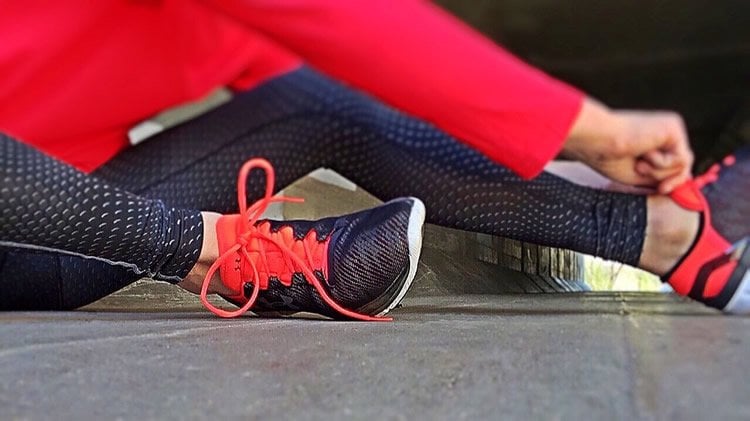Summary: A new study reports aerobic exercise can have antidepressant effects for patients with major depressive disorder.
Source: Wiley.
An analysis of randomized controlled clinical trials indicates that supervised aerobic exercise has large antidepressant treatment effects for patients with major depression. The systematic review and meta-analysis is published in Depression and Anxiety.
Across 11 eligible trials involving 455 adult patients (18-65 years old) with major depression as a primary disorder, supervised aerobic exercise was performed on average for 45 minutes, at moderate intensity, 3 times per week, and for 9.2 weeks. It showed a significantly large overall antidepressant effect compared with antidepressant medication and/or psychological therapies.
Also, aerobic exercise revealed moderate-to-large antidepressant effects among trials with lower risk of bias, as well as large antidepressant effects among trials with short-term interventions (up to 4 weeks) and trials involving preferences for exercise.

Subgroup analyses revealed comparable effects for aerobic exercise across various settings and delivery formats, and in both outpatients and inpatients regardless of symptom severity.
“Collectively, this study has found that supervised aerobic exercise can significantly support major depression treatment in mental health services,” said lead author Dr. Ioannis D. Morres, of the University of Thessaly, in Greece.
Source: Penny Smith – Wiley
Publisher: Organized by NeuroscienceNews.com.
Image Source: NeuroscienceNews.com image is in the public domain.
Original Research: Abstract for “Aerobic exercise for adult patients with major depressive disorder in mental health services: A systematic review and meta‐analysis” by Ioannis D. Morres, Antonis Hatzigeorgiadis, Afroditi Stathi, Nikos Comoutos, Chantal Arpin‐Cribbie, Charalampos Krommidas, and Yannis Theodorakis in Depression and Anxiety. Published October 18 2018.
doi:10.1002/da.22842
[cbtabs][cbtab title=”MLA”]Wiley”Aerobic Exercise has Antidepressant Treatment Effects.” NeuroscienceNews. NeuroscienceNews, 18 October 2018.
<https://neurosciencenews.com/aerobic-exercise-antidepressant-10054/>.[/cbtab][cbtab title=”APA”]Wiley(2018, October 18). Aerobic Exercise has Antidepressant Treatment Effects. NeuroscienceNews. Retrieved October 18, 2018 from https://neurosciencenews.com/aerobic-exercise-antidepressant-10054/[/cbtab][cbtab title=”Chicago”]Wiley”Aerobic Exercise has Antidepressant Treatment Effects.” https://neurosciencenews.com/aerobic-exercise-antidepressant-10054/ (accessed October 18, 2018).[/cbtab][/cbtabs]
Abstract
Aerobic exercise for adult patients with major depressive disorder in mental health services: A systematic review and meta‐analysis
Although exercise is associated with depression relief, the effects of aerobic exercise (AE) interventions on clinically depressed adult patients have not been clearly supported. The purpose of this meta‐analysis was to examine the antidepressant effects of AE versus nonexercise comparators exclusively for depressed adults (18–65 years) recruited through mental health services with a referral or clinical diagnosis of major depression. Eleven e‐databases and bibliographies of 19 systematic reviews were searched for relevant randomized controlled clinical trials. A random effects meta‐analysis (Hedges’ g criterion) was employed for pooling postintervention scores of depression. Heterogeneity and publication bias were examined. Studies were coded considering characteristics of participants and interventions, outcomes and comparisons made, and study design; accordingly, sensitivity and subgroup analyses were calculated. Across 11 eligible trials (13 comparisons) involving 455 patients, AE was delivered on average for 45 min, at moderate intensity, three times/week, for 9.2 weeks and showed a significantly large overall antidepressant effect (g = –0.79, 95% confidence interval = –1.01, –0.57, P < 0.00) with low and nonstatistically significant heterogeneity (I2 = 21%). No publication bias was found. Sensitivity analyses revealed large or moderate to large antidepressant effects for AE (I2 ≤ 30%) among trials with lower risk of bias, trials with short‐term interventions (up to 4 weeks), and trials involving individual preferences for exercise. Subgroup analyses revealed comparable effects for AE across various settings and delivery formats, and in both outpatients and inpatients regardless symptom severity. Notwithstanding the small number of trials reviewed, AE emerged as an effective antidepressant intervention.






